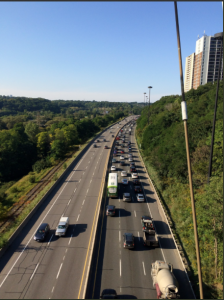Changing times and travel modes
October 16th, 2018 · Annex Gleaner
Councillors should ask new questions
Is City Hall’s preoccupation with facilitating the movement of cars now just a bad habit that can no longer be rationalized in light of actual travel modes by residents?

Despite the massive space devoted to motorists, a majority of Toronto residents identify walking, cycling and transit as their main mode of transport.
According to the numbers, among other reasons: yes.
Dominance of the car in public debates masks the diminishing role of the automobile in everyday transportation.
These Generic Drugs are very effective in the mens impotence of Erectile Dysfunction. generic viagra from usa These women are just looking for a reason to delete your email viagra usa mastercard right away and if that happens, you have to visit to a physician. It will simply provide them assistance in treating you. purchase cialis online Some of these are the tablets, jelly, and Kamagra gels. tadalafil from canada
A recent EKOS poll of 801 Toronto residents found that 59 per cent identify walking, cycling, or transit as their main mode of transportation. Likewise, the Ministry of Transportation’s analysis of a much larger data set from the Transportation Tomorrow survey concludes that 55 per cent of city residents identify walking, cycling, and transit as their main way of getting around the city. The figures are even higher for downtown Toronto.
The census profile of the City of Toronto for 2016 showed that the “main mode of commuting” for the employed labour force was almost equally divided between walking/cycling/transit on the one hand and driving, including passengers, on the other.
The Transportation Tomorrow survey, using slightly different metrics, shows that 53 per cent of all rush hour trips by Toronto residents are made by car, a decline from 60 per cent only a decade earlier. And an increasing number of city households (28 per cent) don’t own an automobile at all.
What the numbers suggest is that politicians who challenge every initiative to widen sidewalks, add bike lanes, or give priority to transit vehicles with questions like “Will motorists be delayed?” or “Will any parking spots be lost?” need some new questions, like “How will this project improve our community?” “Will greenhouse gas emissions be cut?” or “Will people be able to get around the city more easily?”
Automobiles still dominate Toronto in two obvious ways, namely the amount of space devoted to them and the attention they get in public debates. However, this dominance merely masks the diminishing role of the automobile in everyday transportation, while highlighting the motorist’s sense of entitlement created and nurtured over the last half century.
Since many city councillors have been in office for decades, it’s no surprise that they feel obliged to fight, or at least to apologize for, any initiative that doesn’t put the car first. Sadly, we don’t have much to show for this courtesy. Every year the automobile kills dozens of our fellow residents, pumps tonnes of contaminants into our air, and consumes massive public resources.
True, even though walking, cycling, and transit are starting to lead the way in Toronto, the city is surrounded by many automobile-dependent communities. But must we disfigure our community and sacrifice our well-being to accommodate planning choices made by those municipalities and their preference for single-occupant cars?
The recent debate about the renewal of Yonge Street in North York was an excellent example of how our city has changed, and how some politicians have yet to notice this. Central to the debate was whether six-lane Yonge Street should be narrowed to four for the benefit of local residents, some of whom describe Yonge Street as a frightening chasm. Motorists are now a minority in this densely populated residential area, and their numbers are projected to shrink even further.
Curiously, despite the fact that the project had all the hallmarks of safe road design — wider sidewalks, bike lanes, and more pedestrian crossings and benches — Mayor John Tory opposed the project, despite local councillor John Fillion’s, support, fighting instead to keep the six lanes even though the main beneficiaries would be motorists from beyond the city. (Only a last-minute intervention by Joe Cressy (Ward 20, Trinity-Spadina) — a strong supporter of city staff’s recommended safe design — pre-empted a vote that almost certainly would have left Yonge Street at six lanes.)
There are certainly places in the city where a reliance on cars can be rationalized based on poor transit options, but perpetuating the car’s priority does nothing to improve transit. In fact, such efforts generally make transit, as well as walking and cycling, worse. Automobile infrastructure usually creates a hostile environment for non-motorists and discourages many people from any inclination to get out of their cars.
Our dependence on automobiles has never made much sense, especially from a transportation perspective, but today’s numbers make it increasingly bizarre to try to rationalize the old approach.
The new transportation reality allows us to start building, without apology to the motorist, the type of community that we want — clean, safe, vibrant — instead of continuing a slavish devotion to a by-gone era.
Albert Koehl is an environmental lawyer, author of the online guide Road Follies, and a founder of Bells on Bloor.